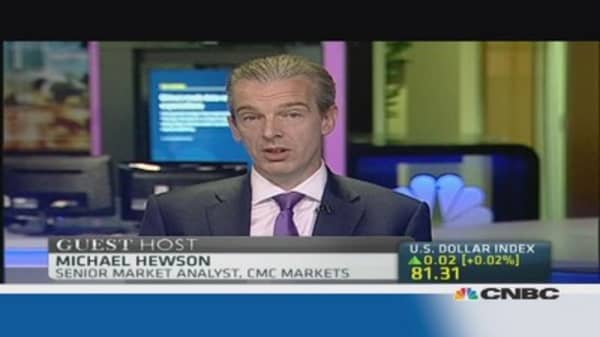Betting on yen weakness has been touted as the trade of the year, but with the currency hitting seven-week highs against the dollar, analysts are starting to question if the popular wager is losing its luster.
The yen strengthened to 96.60 against the greenback on Thursday, moving even further from the psychological 100 mark, as the prospect that the U.S. Federal Reserve may be less aggressive in tapering its monetary stimulus took the shine off the dollar.
(Read More: Where's the yen going? Look to the Fed for answers)
Expectations that Japanese investors would switch out of overseas currencies ahead of a mid-August holiday also helped support the yen, which has gained more than 3 percent since the low of 99.94 notched in the past week.
The strengthening yen has also caused a rout in the Japanese stock markets. The benchmark Nikkei has tumbled 6 percent so far this week, led by exporters who stand to lose their competitive edge with a robust currency.
(Read More: Will Japanese Tax Consume the Yen's Strength?)
"The idea of buying dollar-yen, which was once touted as one of the best trades of 2013 is now looking tenuous," said Kathy Lien, managing director of FX strategy at BK Asset Management.


.530x298.jpg?v=1375937330)



